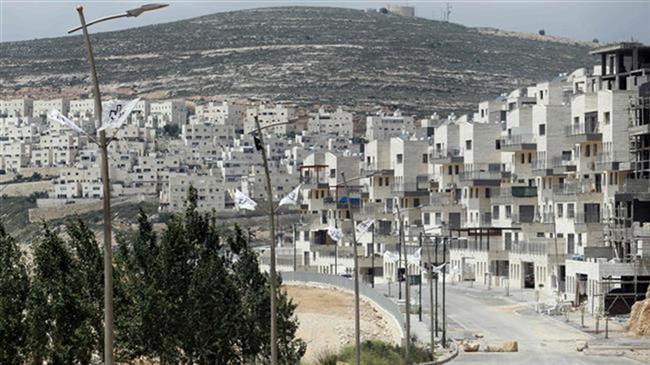
RNA - "Throughout the reporting period Israel's illegal settlement-related activities continued unabated," said Mladenov during his monthly report to the Security Council on Tuesday.
"I reiterate the long-standing UN position that all settlement-related activities are illegal under international law and are a substantial obstacle to peace; and I call on Israel to seize and reverse such policies," he added.
About 600,000 Israelis live in over 230 settlements built illegally since the 1967 occupation of the Palestinian territories.
The continued expansion of Israeli settlements is one of the major obstacles to the establishment of peace in the Middle East.
In recent months, Tel Aviv has stepped up its settlement construction activities in the occupied Palestinian lands in a blatant violation of international law and in defiance of United Nations Security Council Resolution 2334.
European nations and the United Nations, among others, maintain their strong opposition to settlement building in the Palestinian territories.
Mladenov further censured the demolition and seizure of Palestinian structures especially the destruction of donor-funded classrooms built for Palestinian children.
"Demolition and seizure of Palestinian-owned structures also continued, with 31 structures affected, resulting in 33 Palestinians displaced. Particularly concerning was the demolition of two donor-funded classrooms serving Palestinian children in the Bedouin community of Abu Nuwar. This is the sixth demolition or confiscation in the school since February 2016," he said.
Calling on the Tel Aviv regime to halt such activities, he noted that 44 schools in the occupied West Bank are currently at risk of be destroyed.
The UN official also voiced worries over the he humanitarian, economic and ecological situation in Gaza, stressing that it is unsustainable.
"Continuing power cuts of up to 20 hours per day severely undermine the provision of basic services. Without additional immediate fuel deliveries, the situation could deteriorate with dramatic consequences," he added.
The Gaza Strip has been under an Israeli siege since June 2007. The blockade has caused a decline in the standards of living as well as unprecedented levels of unemployment and unrelenting poverty.
The Israeli regime denies about 1.8 million people in Gaza their basic rights, such as freedom of movement, jobs with proper wages as well as adequate healthcare and education.
847/940